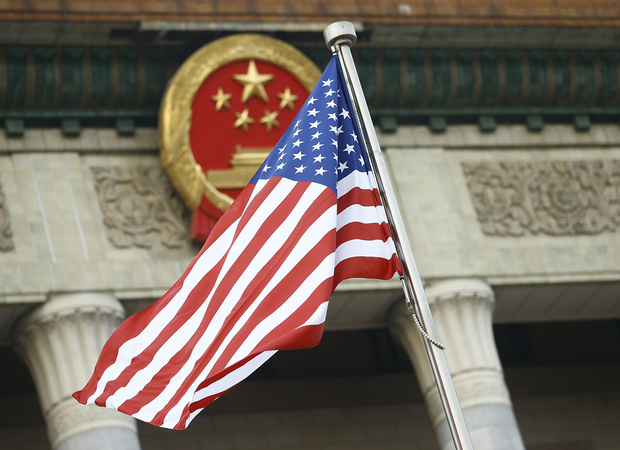The Arms Race in the South China Sea
on December 20, 2017
China’s increasingly assertive attitude in the South China Sea has its neighbors worried.
China’s increasingly assertive attitude in the South China Sea has its neighbors worried.
Taiwan is investigating four members of a small political party that advocates unification with China, on the suspicion that they gave Chinese officials classified information related to an espionage case.
South Korea's coast guard said it fired almost 250 rounds of ammunition from a machine gun and other weapons during a confrontation with dozens of Chinese fishing vessels Tuesday.
South Korea's coast guard said it fired almost 250 rounds of ammunition from a machine gun and other weapons during a confrontation with dozens of Chinese fishing vessels Tuesday.
It’s Xi Jinping’s economy now, and he isn’t too worried about debt.
“If you don’t teach her a lesson, someone else will,” Fei explained during his two-hour “Sexual Assertiveness” session, concluding a week-long tutorial offered by Puamap, a team of “professional” seduction artists, marketers, and makeover men. One of those lessons: “Start by kissing her on the neck. That’s why girls always shower before they go out, by the way.” His short spiky hair a flashy cobalt-gray, Fei is a slender man who specializes in “Tui Dao,” a mating style that translates as “push down” or, generously, “get laid.”

The Fei doctrine goes something like this: Chinese girls love Korean TV shows, saccharine melodramas like Boys Over Flowers or Hi! School: Love On, where men are romantics or rakes, and women are always drama queens. On screen, resistance is not just normal, but expected; bedtime can be tearful.

On December 18, U.S. President Donald J. Trump announced the United States’ new national security strategy. He called China a “strategic competitor,” and, along with Russia, called it a “revisionist power.” Those two nations, Trump said, are determined to make economies less free and less fair, to grow their militaries, and to control information and data to repress their societies and expand their influence.” Is that an accurate reflection of China, and of the Sino-U.S. relationship? And what does this strategy mean for U.S.-China relations?

Aaron L. Friedberg is Professor of Politics and International Affairs at Princeton University, where he has taught since 1987, and Co-Director of the Woodrow Wilson School’s Center for International Security Studies. He is also a Non-Resident Senior Fellow at the German Marshall Fund of the United States and a Senior Advisor to the National Bureau of Asian Research. Friedberg is the author of The Weary Titan: Britain and the Experience of Relative Decline, 1895-1905 and In the Shadow of the Garrison State: America’s Anti-Statism and its Cold War Grand Strategy, both published by Princeton University Press, and co-editor (with Richard Ellings) of three volumes in the National Bureau of Asian Research’s annual “Strategic Asia” series. His third book, A Contest for Supremacy: China, America and the Struggle for Mastery in Asia, was published in 2011 by W.W. Norton and has been translated into Japanese, Chinese, and Korean. His most recent monograph, Beyond Air-Sea Battle: The Debate Over U.S. Military Strategy in Asia was published in May 2014 as part of the International Institute for Strategic Studies’ Adelphi Paper series. Friedberg’s articles and essays have appeared in a number of publications, including The Wall Street Journal, The New York Times, The Washington Post, The Los Angeles Times, Commentary, The National Interest, The American Interest, The Weekly Standard, Foreign Affairs, The Washington Quarterly, Survival, and International Security.
On December 14, the Charity Philanthropy Research Institute (CPRI) at Beijing Normal University published an interview with OVCI la Nostra Famiglia (OVCI Our Family) about their registration process under the Foreign NGO Law. OVCI stressed the importance of “localization”—that is, working closely with a domestically-registered non-profit to understand local needs and utilize local resources. OVCI also discussed their efforts to meet early and often with their potential Professional Supervisory Unit (PSU), beginning in the summer of 2016, before the Law was formally implemented.